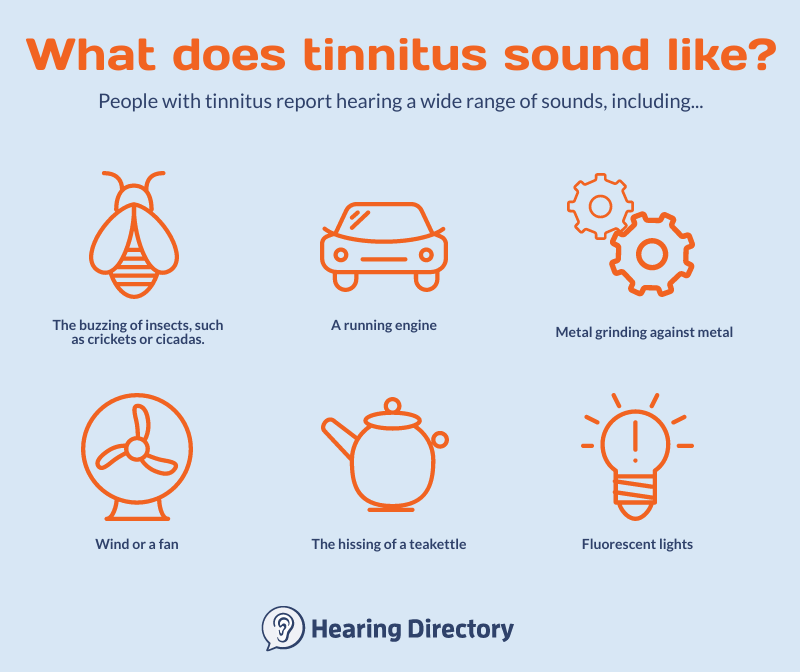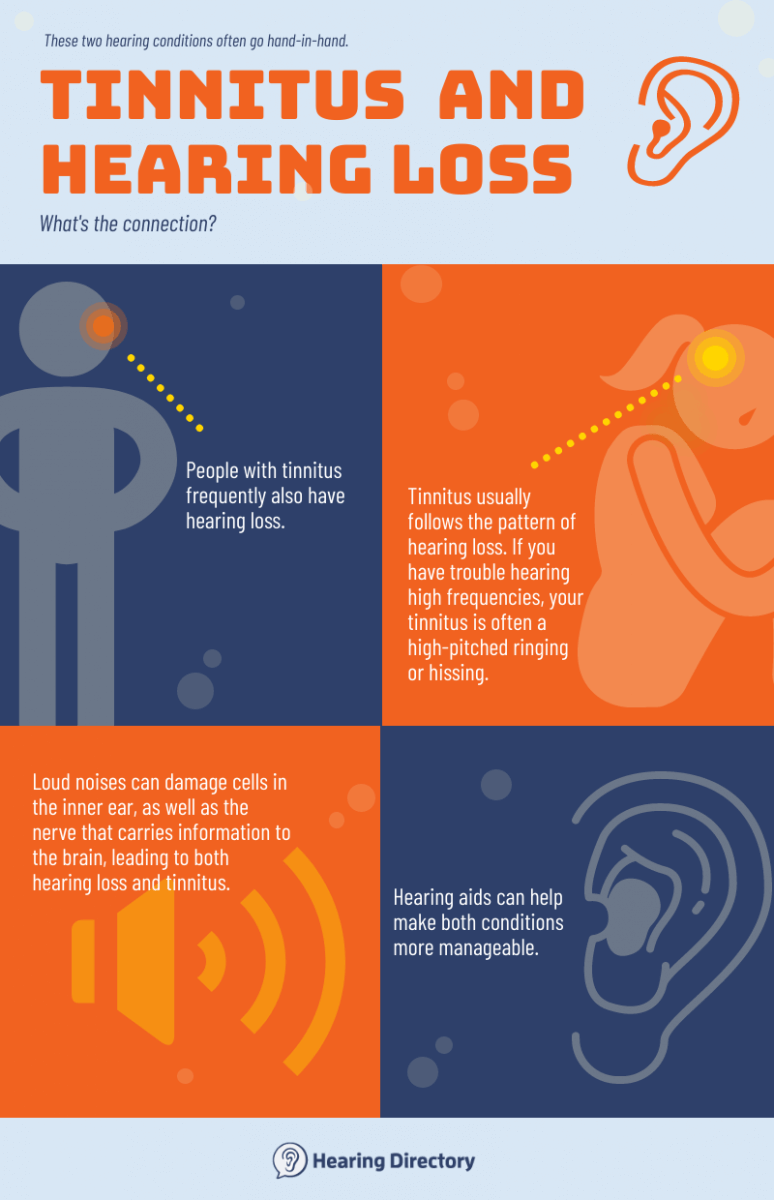|
www.HearingDirectory.ca |
Tinnitus symptoms and causes
By Cara Jelinek, Aud (C), Reg. CASLPO, Audiologist and Clinic Manager Last updated on: September 19th, 2024 Discover the causes, symptoms, and available treatment options for tinnitus, and how it's connected to hearing loss. Tinnitus is a constant or intermittent ringing sound heard in your ears or head. It does not have an outside source and in 95% of cases, only the individual can hear the sound. An estimated 37% of adult Canadians reported experiencing tinnitus. Tinnitus is more common in men than women, though women report tinnitus to be more bothersome. It is normal to feel upset or anxious when you experience tinnitus. About 7% of Canadians with tinnitus said it negatively affected their sleep, concentration and mood. It can be unsettling and disruptive. If this sounds like you, take a tinnitus assessment near you. A professional can assess your tinnitus and provide treatment options. What are the symptoms of tinnitus?Tinnitus is a symptom in itself. It is associated with a number of ailments, such as hearing loss or a medication side effect. People often describe tinnitus as a hissing, buzzing, ringing, roaring or rushing sound. Others report sounds like insects droning or engines running. Many people notice it more at night, or when there are no other sounds around to distract them. The severity of tinnitus varies from person to person. Some may find it mildly annoying while for others it may interfere with work or daily activities. 
even a roaring sound. Common misconceptions about tinnitusIt’s important to know that the sound from tinnitus is NOT imagined. In fact, in about 5% of cases, the sound of tinnitus is actually audible to a person's hearing care provider during an ear exam. This is known as objective tinnitus. Here are some other misconceptions:
What causes tinnitus?The exact physiological mechanism of tinnitus is not known. Research has shown there are several possible tinnitus causes or triggers:
How is tinnitus diagnosed and evaluated?Tinnitus can be diagnosed by an audiologist at a hearing clinic. Your audiologist will conduct a full hearing assessment. This assessment includes a physical examination of the ear and a hearing test. The hearing assessment is painless and many hearing clinics offer free hearing tests and assessments for adults. You do not need a referral to see an audiologist in Canada. Tinnitus and hearing loss: Understanding the connectionDamage to the inner ear can trigger both tinnitus and hearing loss. The combination of the two can reduce your quality of life more than hearing loss or tinnitus alone. In fact, those who have tinnitus and hearing loss are twice as likely to use hearing aids compared to those with hearing loss alone. With tinnitus and hearing loss, not only are you struggling to hear with a malfunctioning ear, you are struggling to hear over an annoying ringing sound! Cyclically, your stress response can worsen the tinnitus. As a result, tinnitus treatment often combines psychological and sound therapies to help you manage the ringing you hear and the way you feel about it.
Identifying tinnitus triggersCertain behaviours or dietary habits can trigger, or worsen tinnitus. Caffeine, alcohol, high doses of aspirin and excessive salt can trigger tinnitus for some people. Noise exposure, smoke, stress or anxiety can as well. How can people with tinnitus live a normal life?There is no tinnitus cure, but many people with tinnitus live normal lives by avoiding triggers and getting the right tinnitus treatment. Tinnitus treatment options may include:
Read more: How to treat tinnitus When should you see a specialist for your tinnitus?It’s always a good idea to get your tinnitus evaluated by a hearing care professional. He or she may refer you to emergency care, or an otolaryngologist (an ear, nose, throat specialist). Reasons for this include:
If you have tinnitus and any of these symptoms, seek immediate medical attention. How to get help for tinnitus reliefHearing Directory lists a growing number of trusted hearing clinics to make hearing care more accessible for Canadians. Helpful badges on the right side of every clinic profile summarize the services each clinic offers, including tinnitus management. Find a hearing professional near you to get started today. References- Ramage-Morin, P., Banks, R., Pineault, D., Atrach, M. (2019). Tinnitus in Canada. Statistics Canada. Cara Jelinek, Audiologist and Clinic ManagerContributing author Cara Jelinek graduated with a master’s degree in audiology from the University of Western Ontario in 2003. She has over 15 years of clinical experience assessing and treating both adult and pediatric populations as well as actively participating in and leading community outreach, teaching and clinical management. Cara finds the variety and pace fulfilling and enjoys working with the public. She is also an active volunteer and coach in her local community.
You are reading about: Related topics
More information about hearing aids. Featured clinics near me
Schedule a hearing test with Healthy Hearing. Find a clinicThe Healthy Hearing Report |
|
www.HearingDirectory.ca |
Tinnitus symptoms and causes
By Cara Jelinek, Aud (C), Reg. CASLPO, Audiologist and Clinic Manager Last updated on: September 19th, 2024 Discover the causes, symptoms, and available treatment options for tinnitus, and how it's connected to hearing loss. |
 Are you located in the United States?
Are you located in the United States?


